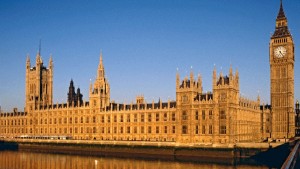Home » Commentary » Opinion » What are we to do about Jeremy?
· Ideas@TheCentre

 In Britain, the Tories think all their Christmases have come at once. Labour Party activists have overwhelmingly chosen as their new leader a Marxist, Jeremy Corbyn, who has the support of barely 10% of his own MPs. He has in turn appointed a shadow cabinet comprising long-term comrades like new Shadow Chancellor of the Exchequer, John McDonnell, plus a smattering of faint-hearted fellow travellers from the Blair and Brown years. He has given the agriculture portfolio to a vegan!
In Britain, the Tories think all their Christmases have come at once. Labour Party activists have overwhelmingly chosen as their new leader a Marxist, Jeremy Corbyn, who has the support of barely 10% of his own MPs. He has in turn appointed a shadow cabinet comprising long-term comrades like new Shadow Chancellor of the Exchequer, John McDonnell, plus a smattering of faint-hearted fellow travellers from the Blair and Brown years. He has given the agriculture portfolio to a vegan!
The Tories believe Labour under Corbyn is unelectable (some even paid £3 to register as Labour supporters so they could vote for Corbyn in the leadership ballot).
Economically, Corbyn’s Labour will be ‘anti-austerity’. Rather than reducing the huge government deficit, Corbyn and McDonnell would force the Bank of England to buy billions of pounds of new debt by creating money (‘People’s Quantitative Easing’) to fund more government spending. They also want to increase taxes on high earners, scrap student fees, renationalise the railways and energy supply industries, control the banks and clobber private landlords.
Foreign policy would be vehemently anti-American and anti-Israel. Corbyn wants Britain out of NATO and says he would scrap the Trident nuclear weapons system. He would refuse to deploy any British forces to fight in the Middle East. He and McDonnell claim they are long-term peacemakers, but theirs is a one-eyed pacifism: in Ireland they befriended Sinn Fein/IRA (McDonnell even called for IRA bombers to be “honoured”) and in the Middle East their chums are Hamas and Hezbollah.
But are the Tories right that Labour is now unelectable?
Much of Corbyn’s program will be popular. There is already strong support among voters for renationalising the railways, taxing ‘the rich’, bashing the bankers and scrapping student fees. Next year the government starts cutting tax credits (top-ups for low-paid workers) and this will fuel ‘anti-austerity’ sentiment. There is also widespread weariness with foreign wars.
The assumption that parties can only win elections ‘from the centre’ is also suspect. Corbyn’s friend, Ken Livingstone, won the London Mayorality on a hard-left platform, and in May the anti-austerity SNP took 56 of Scotland’s 59 seats at Westminster. Emotive, populist leftism is surging across Europe; there is no reason to believe the UK is immune.
Worse, the Tories themselves could soon be in trouble. The referendum on Britain’s membership of the EU, due in 2017, is almost bound to rupture party unity (there have already been mutinous rumblings as Cameron has tried to gerrymander the voting rules). And with China’s growth flagging and Europe tanking, another slump in the world economy seems almost inevitable before 2020, when the next general election is due.
If that happens, Britain will suffer badly, for the asset bubble — fuelled by public and private borrowing — is bigger than ever. If and when the economy crashes, the Tories will forfeit their reputation as competent economic managers, and with the centre party Lib Dems now almost wiped out, voters will turn to Corbyn.
What are we to do about Jeremy?